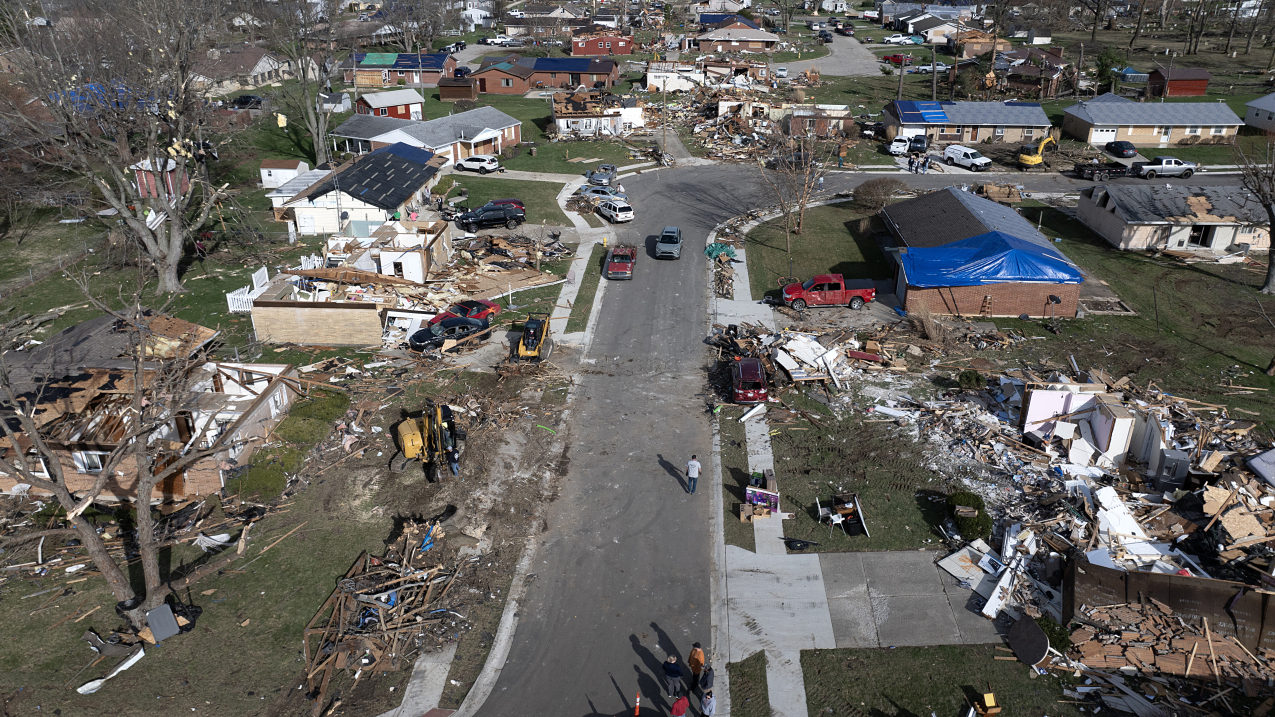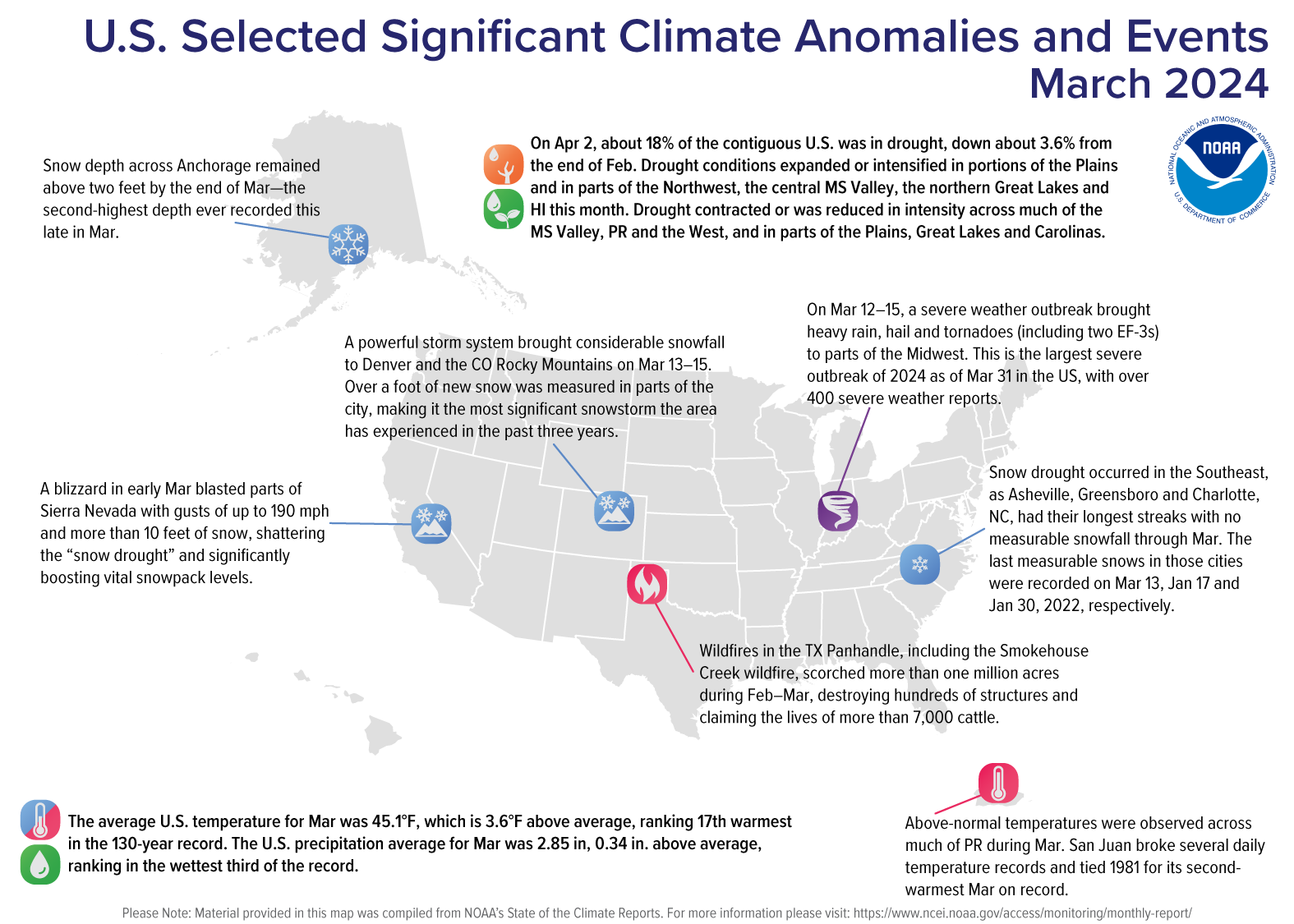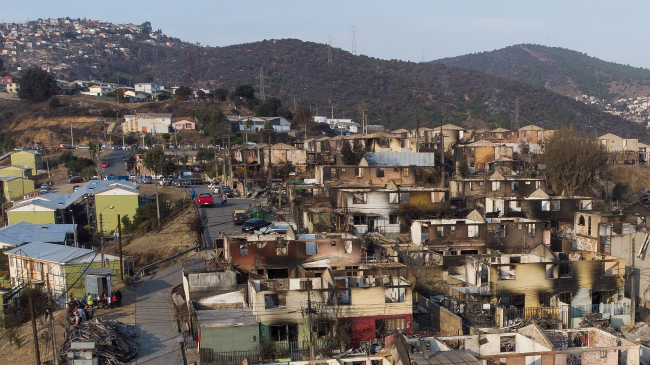Severe weather, wildfires ravaged parts of the U.S.

March 15, 2024: An aerial view of homes destroyed by a tornado in Winchester, Indiana. Severe weather and wildfires ravaged parts of the U.S. in March 2024. (Image credit: Scott Olson/Getty Images)
March 2024 brought wild weather across the U.S., as storms pounded parts of the nation and record-setting wildfires scorched more than a million acres.
The month also capped off the fifth-warmest and 10th-wettest start to a year in NOAA’s 130-year climate record, according to experts and data from NOAA’s National Centers for Environmental Information (NCEI).
Below are more takeaways from NOAA’s latest monthly U.S. climate report:
Climate by the numbers
March 2024
The average monthly temperature across the contiguous U.S. was 45.1 degrees F (3.6 degrees above the 20th-century average), which ranked as the 17th-warmest March in the climate record.
March temperatures were above average across much of the contiguous U.S., while below-average temperatures were observed in small pockets of the West and Southwest.
The average precipitation in the contiguous U.S. last month was 2.85 inches (0.34 of an inch above average), which ranked in the wettest third of the historical record.
Precipitation was above average across much of the West, in the Great Lakes and along the Gulf and East coasts, as well as parts of the northern Plains. Maine and Rhode Island each had their second-wettest March on record.
Year to date (YTD, January through March 2024)
The average contiguous U.S. temperature for the YTD was 39.4 degrees F (4.2 degrees above average), ranking as the 5th-warmest such YTD on record.
Maine, Michigan, New Hampshire, New York, Vermont and Wisconsin each had their second-warmest January-through-March period on record. An additional 15 states had their top-10 warmest such YTD on record.
The average precipitation for the first three months of 2024 was 8.15 inches — 1.19 inches above average — ranking as the 10th-wettest January-through-March on record.
Rhode Island had its second-wettest such YTD on record, and six additional states, Connecticut, Delaware, Maryland, Massachusetts, New Hampshire and New Jersey, saw their top-10 wettest YTD.

Other notable climate events
Severe weather battered parts of the U.S.: In mid-March, the U.S. was racked by devastating severe thunderstorms that brought baseball-sized hail and more than 20 tornadoes to portions of the Midwest, resulting in significant damage and loss of life.
A 5.25-inch diameter hail stone fell in Ada, Oklahoma, on March 14, which was the largest stone reported in Pontotoc County since 1950 — as well as the largest hail to fall in the state in nearly 13 years.
A state of emergency was declared for Ohio as several tornadoes struck the state on March 14, resulting in three fatalities when an EF-3 tornado crossed Auglaize and Logan counties.
Wildfires scorched Texas: Five wildfires, including the Smokehouse Creek wildfire, were finally contained in the Texas Panhandle, the largest cattle-producing region in the world. The wildfires burned approximately 1.1 million acres, destroyed hundreds of structures, ruined hundreds of miles of fencing and killed more than 7,000 cattle.
Billion-dollar disasters update: One new billion-dollar weather and climate disaster was confirmed in March 2024 after a severe tornado event impacted the central and southern U.S. from March 13–15. The U.S. has sustained 378 separate weather and climate disasters since 1980 where overall damages/costs reached or exceeded $1 billion (including CPI adjustment to 2024). The total cost of these 378 events exceeds $2.690 trillion.
More > Access NOAA’s latest climate report and download the images.



